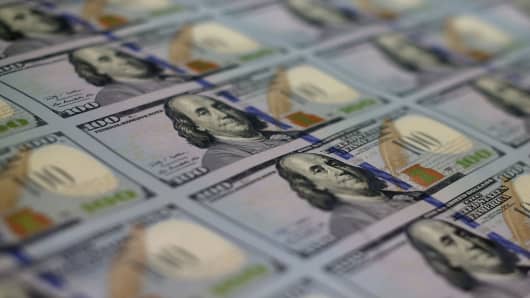The euro declined to a three-week low against the U.S. dollar and fell against Japan's yen on Wednesday after European Central Bank President Mario Draghi highlighted risks to euro zone growth and said monetary policy will stay accommodative.
The euro briefly pared losses against the dollar after final data showed U.S. gross domestic product growth was more tepid than previously estimated in the first quarter. U.S. growth was held back by moderate consumer spending, weak business investment, and declining exports.
The ECB remained the key focus. Draghi said on Wednesday the economic recovery in the euro zone would be gradual but fragile, in line with his comment, a repeat of one made the previous day, that the ECB was nowhere near exiting its accommodative monetary policy.
(Read More: Europe Is Wasting Time: Euro Architect Issing)
"A recession-hit economy, rising borrowing rates for debt-struggling nations and the ECB's accommodative and ready-to-act-anew stance are all conspiring to pressure the euro," said Joe Manimbo, senior market analyst at Western Union Business Solutions in Washington.
Dovish easing sentiment surrounding the ECB contrasts with the expectations for the Federal Reserve to slow its bond purchases sooner than other central banks.
Spreads between 10-year U.S. Treasurys and German bund yields have widened to their highest since April 2010 in favor of dollar assets.
The euro was recently down 0.6 percent at $1.3008, not far from $1.2983, its lowest since June 3. An options barrier was defended at $1.30 in the New York time zone but selling pressure ultimately outweighed support at that level.
Technical analysts said a daily close below its 200-day simple moving average at $1.3072 could trigger more falls toward and below $1.30.
(Read More: S&P 500 Has Topped for 2013: Pro)




